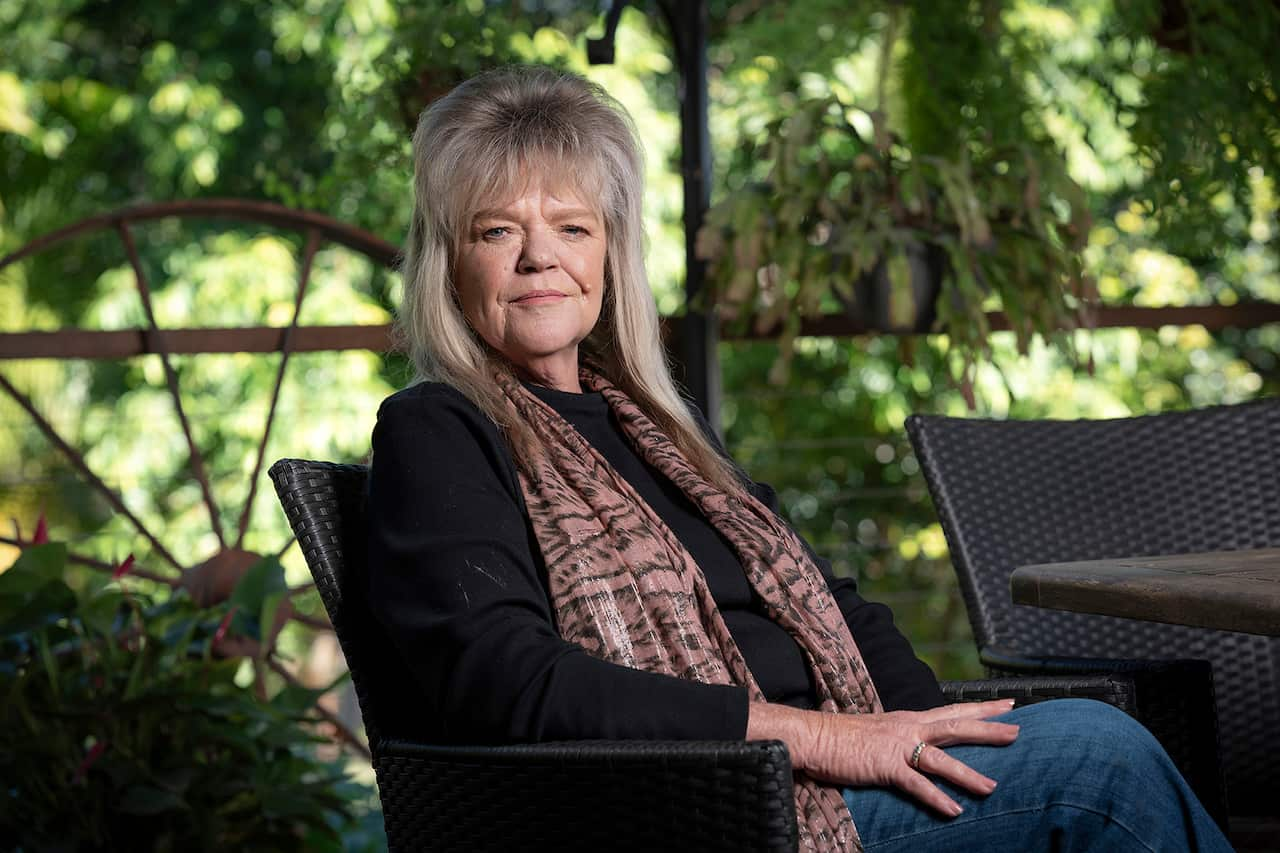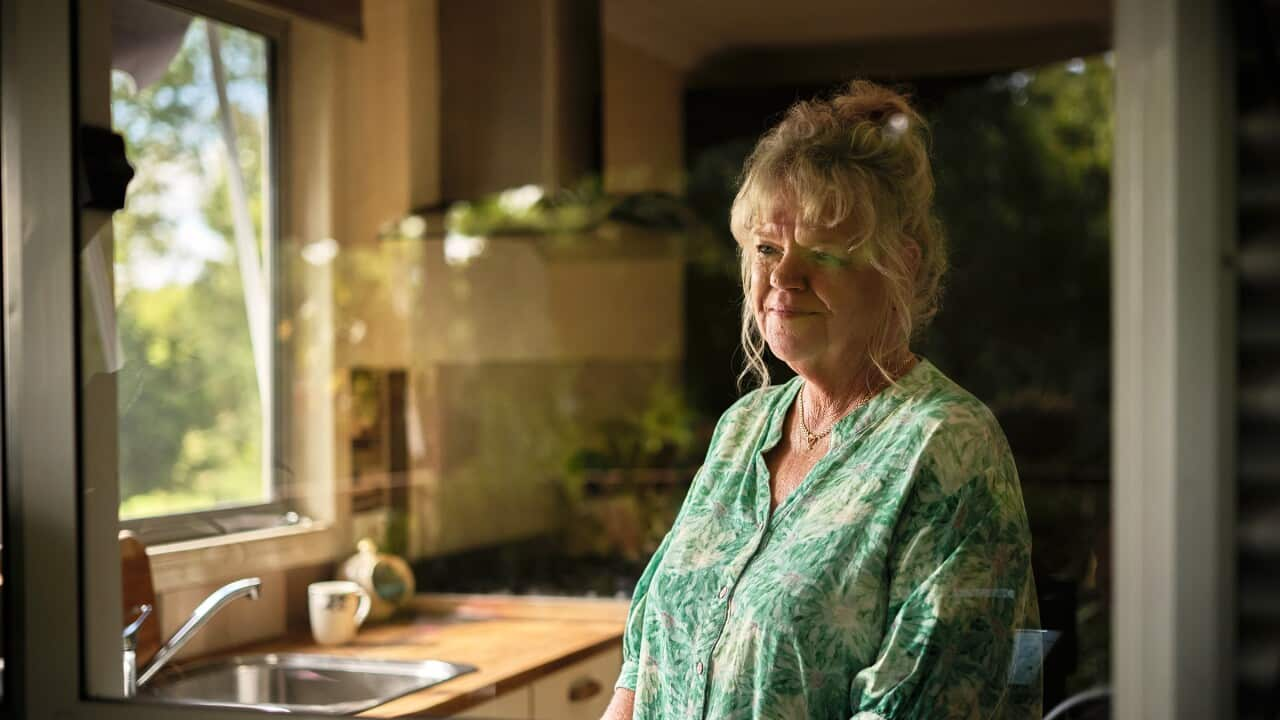Rhys Cauzzo was right at home surrounded by bouquets of colourful, fragrant flowers. A favourite of customers at a chic Melbourne florist, he thrived on the time and attention taken to create displays that thrilled the eyes and nose. However, casual floristry work doesn't cover all the bills, and Rhys, like approximately 5 million Australians, was on Centrelink payments.
It was his reliance on those payments, and the brutal mistakes relating to those payments made by the ‘robodebt’ debt recovery scheme, that led to Rhys's suicide on January 26, 2017, believing he owed $18,000 to the federal government.
In the comprehensive, pacy new documentary The People vs Robodebt, we meet Rhys's mother, Jenny Miller, an advocate for her son and the many victims of the automated client report verification process that resulted in almost half a million Australians receiving official letters demanding tens of thousands in payments be returned to the government.
These debts had been calculated based on flawed formulas and an incorrect interpretation of data. Phone calls lasted "up to 3 and a half hours", fellow victim Felicity Button recalls in the first episode. She was on maternity leave from her nursing job. "I was stressed all the time. I was not sleeping, I was not eating."
That trauma also played out in silent savagery for Miller's son, Rhys.
"He would have been like a deer in a set of headlights, not knowing where to go," Miller recalls in a candid documentary interview.
On September 4, Attorney-General Michelle Rowland announced a further $475 million in compensation for Robodebt victims. This is to be the largest class action settlement in Australia if approved by the Federal Court. It brings the full payout to $548.5 million. But this announcement was too fresh for Miller to process at the time of our interview.
Miller was a fierce advocate for her son, attending Centrelink with him to question the debts, writing to government departments, and – in the aftermath of her son’s death – working with former Government Services Minister Bill Shorten to initiate a Royal Commission.
She admits, “The emptiness of losing Rhys and the subsequent fight has certainly taken it out of me, but I’ve got enough anger to keep going.”
Miller says that when approached by SBS to be part of the documentary, “I had questions as to how the documentary would be processed. I remember saying, ‘If you’re going to soften everything up, I won’t be a part of it. But if you're going to go out there with the truth and stand up for the rights of everyone, well, then I'll be a part of it.”

Miller is adamant that she does not want her young, sensitive son to be seen as a ‘dole bludger’, and this documentary is another avenue to share who he really was with the world.
“Rhys was so sensitive, so loving and caring. He didn’t have a pubescent bone in his body; he didn’t go through the usual teenage-boy antics. He remained this sensitive, beautiful young man. That’s how people knew him, his schoolfriends and people he worked with. He loved animals, cats particularly. As a mother, I can’t remember ever having to get uppity about something because he was so easy to live with.”
Cauzzo was living in Melbourne, and Miller on the Sunshine Coast, when Centrelink first began to question him about his reported work hours and wages in an attempt to match data and elicit a debt.
“It started in early May 2016 via a phone call, which was to clarify that in the year 2010/2011 he earned ‘this’ amount for the year,” recalls Miller.
“That was six years prior, so Rhys said, ‘yeah, that sounds right’. I only found that out through the Royal Commission. Then his first debt letter was around the $10,000 mark. He rang me from Melbourne in great distress and thought it must be a mistake. I was on the Sunshine Coast, so I said I’d fly down, we’d go into Centrelink and sort it out. That’s what we did, but at that point, none of us knew the staff had already been told that they were not to converse about the debts raised.”
For anyone, a $18,000 debt is an incredible imposition, but for someone dependent on government payments for daily living, it's really life-crushing.
Miller says, “Rhys was always working in seasonal or casual work. Sometimes his work as a florist was full-on and he wouldn’t need to rely on Centrelink backup, but other times, he’d declare his wages and have that top-up… [It meant that] he could meet his rent, pay for food, and 90 percent of people are in the same boat. Rhys didn’t go out and spend money; he was working hard. When he wasn’t working, he was writing music and putting together a portfolio that was accepted by RMIT before he took his life. He was meant to start at RMIT in February 2017.”
The process of being interviewed for the documentary was intensive, she says, but the crew was attentive to her need for breaks.
“It took a lot out of me, but it was done very sensitively.”
At the time of this interview, Miller had yet to see the first three episodes of the documentary, but she sounds enthusiastic about viewing it. Perhaps it will be helpful to hear so many voices in chorus with her own, battling for an inquiry and some semblance of justice for those affect by the "crude and cruel" scheme perpetuated by government officials. And for her ongoing advocacy for those affected, Miller deserves to be recognised and appreciated.
Readers seeking support and information about suicide prevention can contact Lifeline on 13 11 14, Suicide Call Back Service on 1300 659 467 and Kids Helpline on 1800 55 1800 (up to age 25). More information about mental health is available at Beyond Blue.
All 3 episodes of The People vs Robodebt will premiere on Wednesday 24 September on SBS On Demand. Episodes air weekly on SBS starting Wednesday 24 September at 7.30pm AEST.
Stream free On Demand

The People vs Robodebt
